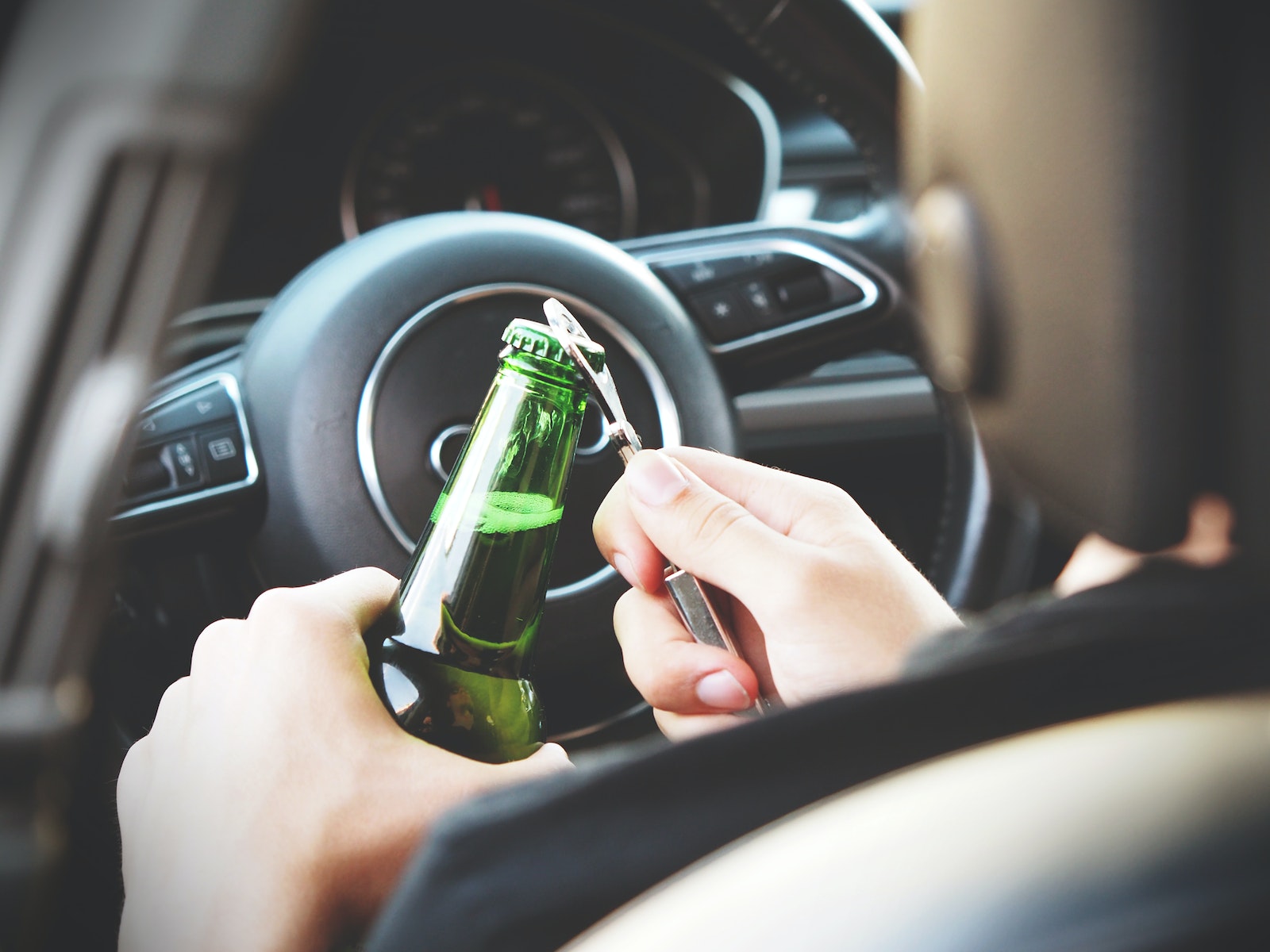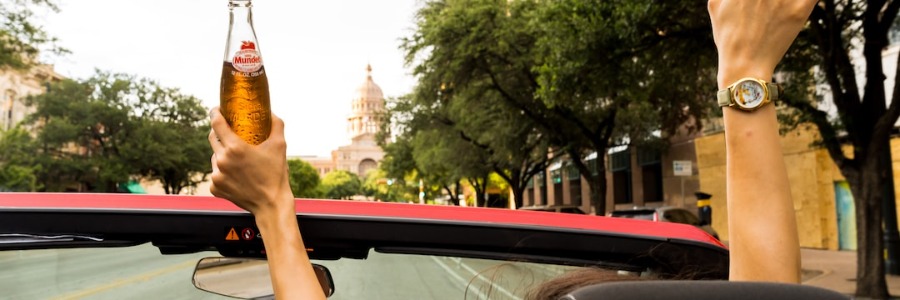Understanding the Open Container Law in Florida
Contents
- Understanding the Open Container Law in Florida
- What is the Open Container Law and why does it exist?
- Specific regulations of the Open Container Law in Florida
- Where does the law apply in Florida?
- Who does the law apply to?
- Penalties and consequences for violating the Open Container Law
- Exceptions to the Open Container Law in Florida
- Open Container Law when hosting events or parties
- Tips for staying compliant with the Open Container Law
- Conclusion
If you’re planning a visit to the beautiful Sunshine State, familiarize yourself with the Open Container Law in Florida. This law, like in many other states, regulates the consumption of alcoholic beverages in public places.
The Open Container Law in Florida (316.1936-1a) prohibits individuals from possessing an open container of alcohol in certain public areas. It aims to maintain public safety and prevent incidents related to public intoxication and irresponsible alcohol consumption.

Under this law, an open container is defined as any container with a broken seal, a partially removed lid, or a container with its contents partially consumed. This includes bottles, cans, cups, or any other vessel used to hold alcoholic beverages.
The law applies to public areas such as sidewalks, parks, beaches, parking lots, and streets. It is important to note that the law does not apply to private property, including homes, hotel rooms, and rented accommodations.
In the following sections, we will delve deeper into the specifics of the Open Container Law in Florida, including exemptions, enforcement, and the potential consequences of non-compliance. Whether you’re a resident or a tourist, having a clear understanding of this law will ensure a safe and enjoyable experience in the state of Florida.
What is the Open Container Law and why does it exist?
The Open Container Law is a regulation that prohibits the consumption or possession of an open alcoholic beverage in public places, such as streets, sidewalks, parks, and vehicles. This law is in effect to maintain public safety and prevent the potential risks associated with alcohol consumption in public areas.
The primary purpose of the Open Container Law is to reduce instances of public intoxication, disorderly conduct, and alcohol-related accidents. By prohibiting open containers of alcohol in public spaces, it aims to discourage excessive alcohol consumption, maintain order, and protect the well-being of individuals within the community.
The law serves various purposes, including promoting responsible drinking habits, preventing public disturbances, and ensuring the safety of pedestrians and motorists. It helps to deter individuals from engaging in potentially dangerous behaviors that can arise from public alcohol consumption, such as impaired judgment, aggressive behavior, or accidents caused by intoxicated individuals.
Furthermore, the Open Container Law aligns with broader efforts to create a safe and enjoyable environment for residents and visitors alike. By establishing clear guidelines regarding the possession and consumption of alcohol in public areas, it helps maintain a positive image of the community and enhances the overall quality of life.
Understanding the Open Container Law is crucial for both residents and tourists in Florida to avoid legal consequences and promote a responsible drinking culture. By familiarizing yourself with the law and its underlying reasons, you can make informed decisions and contribute to safer and more enjoyable public spaces for everyone.
Specific regulations of the Open Container Law in Florida
Understanding the specific regulations of the Open Container Law in Florida is crucial to avoid any legal issues and ensure a safe and enjoyable experience. In Florida, the Open Container Law prohibits the possession or consumption of alcoholic beverages in certain public areas.
First and foremost, it’s important to know that the law applies to both drivers and passengers in motor vehicles. If you are in a motor vehicle, it is illegal to have an open container of alcohol, regardless of whether you are the driver or a passenger. This includes any open containers in the passenger area, such as the cup holder or on the seat.
Additionally, the law extends to public areas outside of motor vehicles. It is illegal to possess an open container of alcohol on any public street, sidewalk, park, beach, or other similar areas. This means that you cannot walk around with an open alcoholic beverage in hand in these public areas.

However, there are exceptions to this law. Certain designated areas or events may allow for the consumption and possession of alcohol, as long as it is within the designated boundaries. These areas are usually licensed establishments or events that have obtained the necessary permits.
It’s also worth mentioning that the Open Container Law varies from county to county in Florida. Some counties may have stricter regulations or additional restrictions on where and when alcohol can be consumed. It’s always a good idea to familiarize yourself with the specific regulations of the county you are in to ensure compliance with the law.
Understanding the specific regulations of the Open Container Law in Florida is essential to avoid any legal consequences. By adhering to these regulations, you can enjoy your alcoholic beverages responsibly and ensure the safety of yourself and others around you.
Where does the law apply in Florida?
The Open Container Law in Florida is an important regulation that everyone should be aware of. Understanding where this law applies is crucial to avoid any legal repercussions. In the state of Florida, this law applies to public places, including streets, sidewalks, parks, beaches, and any other areas accessible to the general public.
The Open Container Law applies not only to alcoholic beverages but also to any open container containing an alcoholic beverage. This means that it is illegal to have an open container of alcohol in your possession in these public areas, regardless of whether you are consuming it or not.
The law aims to promote public safety and prevent incidents related to public intoxication. By restricting the consumption and possession of open containers in public places, the state of Florida aims to minimize the potential for disorderly conduct and maintain a safe environment for residents and visitors alike.
It’s important to be mindful of the Open Container Law when attending public events, such as festivals, concerts, and outdoor gatherings. In these situations, familiarize yourself with the specific rules and regulations imposed by event organizers to ensure compliance with the law.
Who does the law apply to?
The open container law in Florida is an important regulation that aims to maintain public safety and order. To fully understand its implications, it’s crucial to know who exactly the law applies to.
Drivers and Passengers
The open container law in Florida applies to both drivers and passengers in motor vehicles. This means that if you are operating a vehicle or riding as a passenger, you are subject to the regulations outlined in the law. It is essential to note that this law encompasses not only cars but also motorcycles, trucks, and other motorized vehicles.
Pedestrians
In addition to motor vehicles, the open container law also applies to pedestrians in certain public areas. These areas include sidewalks, parks, beaches, and other public spaces where alcohol consumption is prohibited by local ordinances. It’s crucial to familiarize yourself with the specific regulations in your area to avoid any legal issues.
Broken seal
Open container law applies to any alcoholic beverage that is open, has a broken seal, or has a partially consumed content. This means that even if the container is not being actively consumed, its presence in the vehicle or public space can still be considered a violation of the law.
Penalties and consequences for violating the Open Container Law
It is illegal to possess an open container of alcohol in a vehicle while it is being operated or while a passenger is present. This applies to both the driver and the passengers. An open container is defined as any alcoholic beverage that has been opened, has a broken seal, or has a partially removed lid or cap.
If found in violation of the Open Container Law, the penalties can be severe. In Florida, it is considered a non-criminal traffic infraction, which means it is not a criminal offense but still carries significant consequences. The typical penalty for a first-time offense is a fine of up to $500. Additionally, points may be added to your driving record, which can result in increased insurance premiums.
Repeat offenders may face more severe penalties. A second offense within five years of the first can result in a fine of up to $1,000 and potential imprisonment of up to six months. Subsequent offenses carry even harsher consequences, including increased fines and longer periods of imprisonment.
The Open Container Law applies to all types of vehicles, including cars, trucks, motorcycles, and even bicycles. The law is enforced on public roads, highways, and parking lots accessible to the public.
Exceptions to the Open Container Law in Florida
While the Open Container Law in Florida prohibits the possession or consumption of alcoholic beverages in certain public places, there are important exceptions to be aware of. These exceptions allow individuals to legally possess and consume alcoholic beverages in specific circumstances.
Private property
If you are attending a private party or gathering at someone’s home or a rented venue, you are generally allowed to have an open container of alcohol. However, it’s important to note that the property owner or host may still have the authority to restrict or prohibit alcohol consumption on their premises.
Licensed establishments
For example, some bars, restaurants, and entertainment venues may have outdoor seating areas or designated sections where patrons can consume alcoholic beverages. These areas are often cordoned off or clearly marked to indicate that open containers are permitted within those boundaries. It’s crucial to respect these designated areas and not venture outside of them with an open container.
Special events
Special events or festivals that have obtained the necessary permits may also have exemptions from the Open Container Law. These events typically have designated areas where attendees can enjoy alcoholic beverages while adhering to specific regulations and guidelines set by the organizers.
Even though there are exceptions to the Open Container Law, public intoxication and other alcohol-related offenses can still result in legal consequences. It’s always advisable to drink responsibly and within the confines of the law to ensure your safety and the safety of others.
Open Container Law when hosting events or parties
When hosting events or parties in Florida, it’s crucial to understand and navigate the Open Container Law to ensure a safe and enjoyable experience for everyone involved. The Open Container Law prohibits the possession and consumption of alcoholic beverages in certain public areas, such as streets, sidewalks, and parking lots. However, there are specific guidelines and exceptions that can help you stay compliant while still providing a festive atmosphere.
The Open Container Law does not apply to private properties, such as your own home or a rented venue. As a host, you have the freedom to allow alcoholic beverages on your premises, as long as you are not serving underage individuals or encouraging excessive consumption.
If you’re hosting an outdoor event in a public space, such as a park or a beach, obtain the necessary permits and permissions from the local authorities. These permits may include specific regulations regarding the consumption of alcohol, and it’s crucial to adhere to them to avoid any legal issues.
To navigate the Open Container Law effectively, consider implementing designated areas for the consumption of alcoholic beverages. This can be a designated bar area or a clearly marked section where attendees can enjoy their drinks without violating the law. By clearly defining these spaces, you can help your guests understand and adhere to the rules, ensuring a safe and legal environment.
Tips for staying compliant with the Open Container Law
Staying compliant with the Open Container Law in Florida is essential to avoid any legal issues and ensure the safety of yourself and others. Here are some useful tips to help you stay on the right side of the law:
- Know the law: Familiarize yourself with the specific regulations regarding open containers in Florida. Understanding the details will help you avoid unintentional violations.
- Keep containers sealed: When transporting alcoholic beverages in a vehicle, make sure they are properly sealed and the seal remains unbroken. This applies to both drivers and passengers.
- Use the trunk: If you have open containers of alcohol in your vehicle, it is best to place them in the trunk. This keeps them out of reach and sight, reducing the risk of any misunderstandings or potential legal complications.
- Don’t consume alcohol in public places: It is important to remember that consuming alcohol in public places, such as parks, sidewalks, or parking lots, is generally prohibited. Be mindful of where you choose to enjoy your drinks and opt for designated areas or licensed establishments.
- Choose a designated driver: If you plan on consuming alcohol, always designate a sober driver to ensure a safe journey. This not only helps you stay compliant with the Open Container Law but also promotes responsible drinking habits.
- Plan alternative transportation: Consider using rideshare services, taxis, or public transportation if you’re unsure about staying compliant with the Open Container Law. This eliminates the need to transport open containers in your own vehicle.
Conclusion
Understanding the Open Container Law in Florida is essential for maintaining public safety and avoiding legal issues. By following the regulations and being mindful of where and when you consume alcohol, you can ensure a positive experience while enjoying the vibrant atmosphere of the Sunshine State. Stay informed, stay responsible, and enjoy your time in Florida responsibly.
We hope you found our blog post on understanding the open container law in Florida informative and helpful. It’s essential to be aware of the laws and regulations surrounding open containers to avoid any legal troubles. By understanding the specifics of the law, such as where and when it is permissible to have an open container, you can ensure a safe and enjoyable experience in Florida. Remember to always drink responsibly and follow the guidelines set forth by the law. Stay informed and stay safe!




